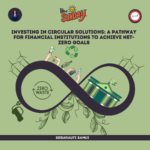
Amongst all the hullabaloo over the economic impact from COVID-19, Financial Times asked a pertinent question for the world and especially for India- Is the coronavirus crisis taking women back to the 1950’s?
For India’s 600 million women, the crisis has heightened the pre-existing gender imbalances. According to a World Economic Forum (WEF) report, India ranked 112 out of 153 countries on gender parity even before the pandemic. It takes the 149th position in terms of Economic Participation and Opportunity, 112th in Education and 150th in Health and Survival. The female labour force participation is a mere 24.8% and 90% of these women are involved in informal employment. [1]The service sector, which includes retail and hospitality industry has been the hardest hit and unfortunately employs a large proportion of women. This put millions of women at the risk of a permanent exit from the labour market or doing vulnerable jobs. The reverse migration crisis of labourers from cities to villages has translated to reduction in economic opportunities for rural women. This includes both private agricultural jobs and social protection schemes such as the Mahatma Gandhi National Rural Employment Guarantee Act (MGNREGA). This will lead to greater income poverty among women and a sharp fall in their command over market income — both key predictors of household wellbeing and food security.[2]
The National Family Health Survey (NHFS 4) talks about the non-economic aspects of gender parity in India. Almost 33% of married women have experienced physical, sexual or emotional spousal violence. The COVID pandemic which forced India to implement the strictest lock-downs in the world has heightened vulnerability of gender-based violence as both the partners are stuck at home. The economic and non-economic frustrations along with no exit options for women has led to an increase in the number of emergency calls to helplines between 25%-300%.[3]
Food and nutrition insecurities worsen during economic crises. As per Indian societal norms, women and girls are supposed to prioritize the health and well being of men and boys. Hence, the first to experience hunger when resources are in short supply — even in normal times are females. Indian women consume nutrient-rich foods less frequently than men. Short-term malnutrition can lead to permanent exclusion from the labour market and government workfare schemes, contributing to a new cycle of poverty among working-class women.[4] Among other things, the pandemic ruptured the service delivery of key welfare services. According to a survey, only 75% of pregnant and lactating women and 13.75% of adolescent girls suffering from malnourishment received ration from the 1.3 million ICDS Anganwadi centres.[5]
The pandemic has already seen the scrapping of labour laws which the respective state governments believe is the only way to attract private investment. Without policy reinforcement, COVID-19 will only deepen existing social and economic inequalities for Indian women. So, what should be done to help women as the Indian economy prepares to open further?
Every crisis presents an opportunity and it is imperative we do not let this crisis slide into a ‘she-cession’. One solution could be to increase the involvement of women in the COVID recovery plans. For example, Kerala’s Health Minister, K.K. Shailaja has been honoured by the United Nations for her efforts to tackle the pandemic. Under her guidance, The Gender Park, an autonomous body under the Kerala Government, is all set to partner with the United Nations Women to further the cause of women empowerment and function as a South Asia hub for gender equality. She has been featured in Vogue’s Women of The Year andonFinancial Times Most Inspiring Women among other tributes.
[1] http://www3.weforum.org/docs/WEF_GGGR_2020.pdf
[2] https://blogs.lse.ac.uk/southasia/2020/07/08/tackling-indias-deepening-gender-inequality-during-covid-19/
[3] https://www.thehindu.com/opinion/op-ed/fighting-a-double-pandemic/article31884170.ece
[4] https://blogs.lse.ac.uk/southasia/2020/07/08/tackling-indias-deepening-gender-inequality-during-covid-19/
[5] https://assets.kpmg/content/dam/kpmg/in/pdf/2020/06/anganwadi-report-2020.pdf














Leave a comment